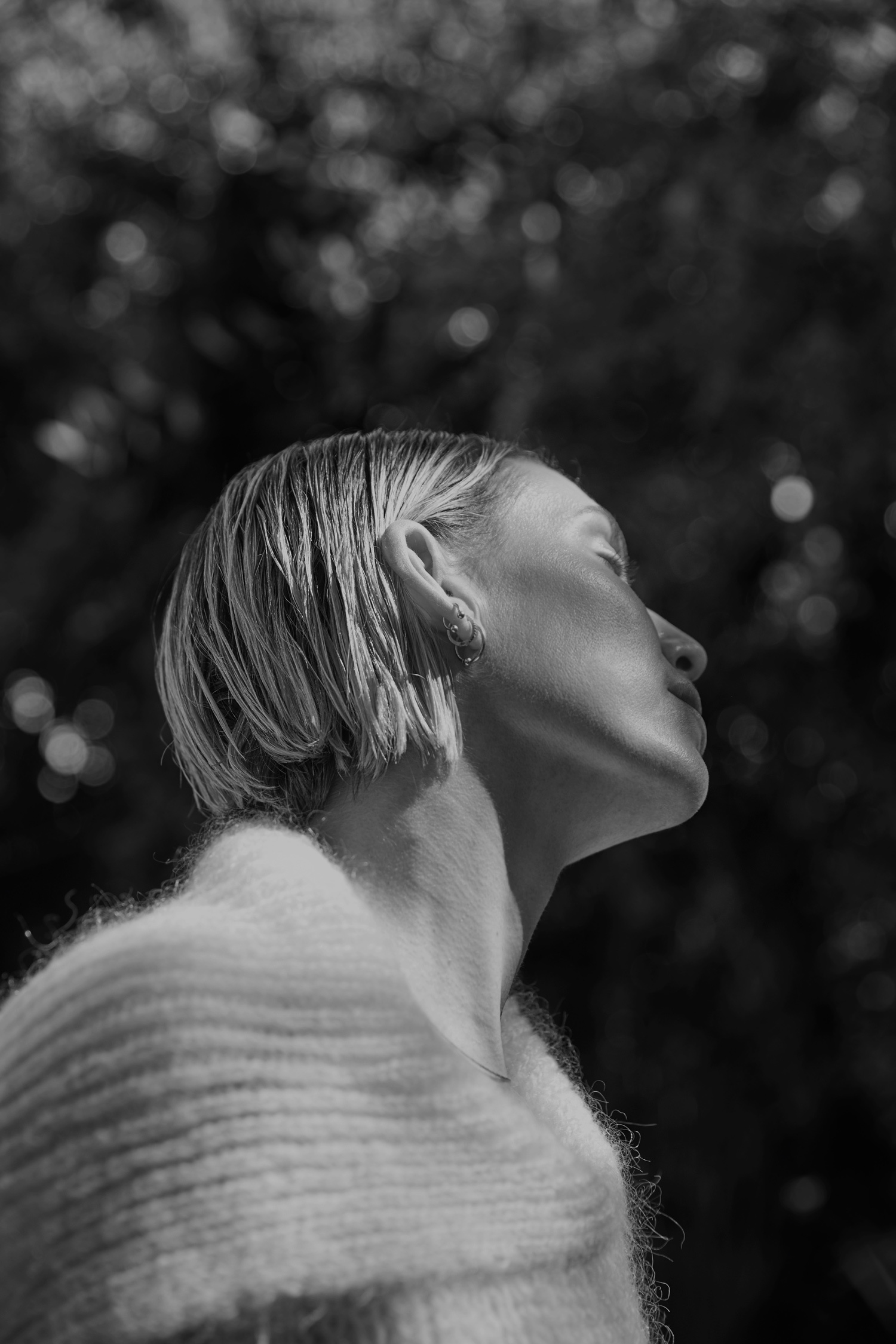Lykke Li
On homesickness, stereotypes and stardom.

Lykke wears a cream colored sweater by Maria Dora.
Lykke Li’s relationship with her Swedish heritage is complicated. When her hook-driven debut album, Youth Novels, was released to critical and popular acclaim in 2008, Li resented the inevitable comparisons to the Scandinavian pop singers that had come before her. Journalists who innocuously referenced Abba or Robyn during early interviews were met with not-so-subtle indignation.
“I’ve gotten over that,” she says today, speaking from Los Angeles, where she’s lived for half a decade now. “I think it can be frustrating when you’re starting out and you’re constantly getting compared to other female artists, but I realize that’s just part of the system and being a woman. We’re taught from an early stage that there isn’t room for all of us, which is wrong. In my opinion, the more women, the better!”
If she’s embraced the “Swedish pop singer” label affixed a decade ago, Li has done so in her own style. So Sad, So Sexy, the album Li released in June, is slick and stadium-ready but there’s an unexpected melancholy woven into it. The press has speculated that her relationship with producer Jeff Bhasker, the father of the child she had in 2016, inspired its lyrical accounts of heartache and heartbreak. Li prefers to approach the question in broader terms, “I write what I know… and try to accurately describe the scenarios around me,” she says. “This is just what my world looked and sounded like at the time.”

She wears a vintage white leather suit pants, blazer and tank.
The world is a fragile place, so you have to be thankful for what you have.
Things only slowed down (and even then only briefly) in 2015 with the birth of her first child, Dion. She’s raising him in Los Angeles with a Swedish approach to parenting. That translates, Li says, to not imposing gender roles on her son. “I feel like the stereotype of what being a man is is more ancient and engrained [in the US], but that goes back to how the whole system is built, from maternity leave to what type of person is in power,” she says. “Frankly it can be a very scary place.”
The world around Li has generally looked busy—very busy. She has collaborated with U2, Kanye West and Drake and penned a song for the soundtrack to a film in the Twilight series. And she’s taken home international awards for songs that became top 10 hits. Today, her universe is in the state of flux that comes with a month on the road, touring cities like New York, Paris, Berlin, and, of course, one final date in Stockholm.
Li has said in the past that, when growing up, her mom wanted her to be as “un-Swedish as possible.” Now, she clarifies what that involved: “I think [my mom] meant, ‘Travel as much as you can and don’t let fear get in the way of how you want to live your life.'” And she did, moving an ocean away from her parents to Brooklyn at 19.


Lykke wears a button sweater by Ulla Johnson and white pants by Rachel Comey.
I miss Sweden more and more the older I get. There’s really no cure for homesickness.
But with age grows nostalgia, along with an affinity for things that once felt too simple, too small. “I miss Sweden more and more the older I get—the conversations, the culture, my friends, walking, biking, the aesthetic. There’s really no cure for homesickness,” she says. If there’s a Swedish creative scene bubbling beneath LA’s surface, Li hasn’t found it. Instead, she relies on podcasts like the culture series En varg söker sin pod to briefly stave off longing.
“I realize a part of me will always be heartbroken and homesick, but there are people who have it so much worse than me, fleeing their home country and not even being able to ever visit again,” she explains. “The world is a fragile place, so you have to be thankful for what you have.” Li is, and it’s never more apparent than when asked where she’s most at home. “Laying next to my sleeping son,” she says. “And that can be anywhere.”
This story originally appeared on Skandiastyle.com.

She wears a vintage flower robe.
Join us on the set of our shoot, which took place at Lykke Li’s Los Angeles home in September 2018.
Behind The Scenes
Join us on the set of our shoot, which took place at Lykke Li’s Los Angeles home in September 2018.



